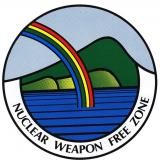Over the years there have been a number of proposals to establish nuclear weapon free zones (NWFZs) in Europe. In 1958, Poland’s Minister of Foreign Affairs, Adam Rapacki proposed that Poland, Czechoslovakia, East Germany and West Germany reject the deployment of nuclear weapons on their territory and join in a NWFZ. In 1963 Finland’s President Kekkonen proposed a Nordic NWFZ comprising Denmark, Finland, Iceland, Norway and Sweden. In the 1970s Romania proposed the denuclearization of the Balkans, and the Soviet Union appealed for creating a nuclear weapon zones in the Mediterranean. However, due to Cold War politics none of these were successful. In any case, the key focus on nuclear weapons constraint was on the stockpiles and policies of the US and USSR.
Following the end of the Cold War, the possibility of establishing a NWFZ in Europe opened up as former Warsaw Pact and Soviet States became free from any deployment of Russian nuclear weapons. In 1996, the Ukraine and Belarus, which under Soviet rule had hosted thousands of nuclear weapons, proposed a NWFZ for Central and Eastern Europe. This was opposed by some former Warsaw Pact countries that were aspiring to join NATO.
A number of developments in Europe and internationally are making the prospect of a European NWFZ more achievable.
Political developments since the end of the Cold War have resulted in a corridor of countries that no longer have, or never had, nuclear weapons deployed on their territory. This now makes possible a NWFZ of contiguous countries without any of these countries having to change current practice.
In addition, there is now a possibility of certain NATO states joining such a NWFZ either now or in the future. It used to be widely believed that countries in military relationship with nuclear countries could not join NWFZs, thus ruling out NATO countries. However, this belief has been dispelled by the examples of a) Australia, a close military ally of the United States, joining the South Pacific Zone, and b) the recent establishment of a Central Asian NWFZ involving countries amongst which there are close military relationships with Russia (under the Tashkent Treaty), and also military relationships with the United States (as part of the 'war against terror').
Basel Peace Office is thus working with some of the European branches of PNND and IPPNW on a draft proposal for a Central European NWFZ. The proposal has already found support in parliamentary resolutions in Belgium, Sweden and the European Parliament.
Resources:
- A Nuclear Weapon-Free Zone in EuropeConcept – Problems – Chances, Harald Müller/Giorgio Franceschini/Aviv Melamud/ Daniel Müller/Anna Péczeli/Annette Schaper, Peace Research Institute Frankfurt, January 2016
- Parliamentarians and a Nuclear-Weapon-Free Zone, PNND and IPPNW
